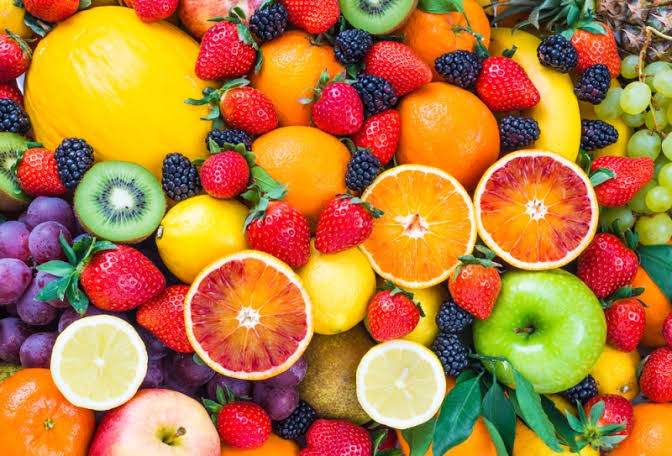Fruit may not make the list of high-protein foods, but some options can provide the essential macronutrient, with the added benefit of fruit’s more abundant components like fiber, vitamins and antioxidants.
Protein is important for satiety, tissue repair and muscle growth. High-protein diet have long been popular for weight loss. More recently, plant-based diets have also gained attention for helping people to lose weight and providing other health benefits.
Compared to other plants, like beans, legumes, nuts and seeds, fruit is lower in protein, confirms registered dietitian Natalie Rizzo, nutrition editor for TODAY.
“But every gram of protein counts, especially if you’re eating a plant-forward diet,” Rizzo says, noting that most people need at least 20 grams of protein per meal.
“The sugar in fruit is a perfectly healthy addition to the diet, and it provides energy for daily activities and exercise.”
“That said, I consider the protein in fruit additive, rather than being something you rely on for protein intake,” Rizzo says.
For example, getting 2 grams of protein from blackberries is a nice addition to the other protein on your plate, but eating 5 cups of blackberries to get 10 grams of protein is “probably overdoing it” on that one food, she explains.
Here are the fruits that contain the most protein. They have 1 gram or more of protein per serving, according to the U.S. Department of Agriculture, which is considered high for fruit, Rizzo says.
Passion fruit
- 1 cup of raw fruit, 5 grams of protein
The tropical fruit has been previously described as having aromatic “jelly-like golden flesh” surrounded by a wrinkled tough outer rind in TODAY.com reporting. It’s also packing fiber, calcium, and vitamins A and C.
The pulp can be eaten raw, as a yogurt topping, or added to juices and drinks.
Jackfruit
- 1 cup of sliced raw pieces, 2.8 grams of protein
When ripe, jackfruit — a relative of figs and breadfruit — is eaten like any sweet fresh fruit. However, the unripe fruit gets a lot of attention because it has the consistency of chicken or pork and can be used as a meat alternative in plant-based diets. Jackfruit can be barbecued, sautéed or added to stews.
Pomegranate
- 1 cup of arils (the fruit’s seeds), 2.9 grams of protein
- The ruby red seeds inside are high in antioxidants, and provide dietary fiber, fatty acids and essential vitamins and minerals.
Almost 30% of the fruit’s seed weight has anti-inflammatory fatty acids that are beneficial for heart health, dietitians say.
Apricots
- 1 cup of sliced fresh raw fruit, 2.3 grams of protein
- 1 cup of dried apricot halves, 4.4 grams of protein
The stone fruit comes with fiber, antioxidants, iron and vitamins C, E, B6 and A. Studies have shown apricots contain “many significant compounds” that reduce inflammation. The fruit is delicious when eaten fresh or as a dried snack. Apricots are also on the list of foods dietitians eat to prevent cancer.
Blackberries
- 1 cup of raw fruit, 2 grams of protein
The deep bluish-purple hue of blackberries comes from bioactive compounds in the fruit and is a signal of powerful nutrients. The antioxidant properties of berries “seem to offer a notable arsenal that reduces the risk of cancer,” studies have found. The fiber in blackberries also supports gut health.
Guava
- 1 fruit, 1.4 grams of protein
This tropical fruit is high in antioxidants, vitamin C, potassium and fiber. Guava has a sweet-tart flavor that’s often compared to that of a strawberry or pear. It can be eaten raw, added to a smoothie or salad, or made into a jam.
Raisins
- 1.5-ounce box, 1.4 grams of protein
Small but nutritionally-mighty raisins promote satiety, are beneficial for the gut and improve heart health due to their high fiber content, studies have found.
Raisins contain potassium to manage blood pressure, the American Heart Association notes, and are among the healthy snacks recommended by cardiologists.
Naturally sweet, raisins are calorie-dense so it’s best to keep the serving size to a handful.
Citrus fruit
- 1 orange, 1.2 grams of protein
- 1 grapefruit, 2.3 grams of protein
Famously good sources of vitamin C, which is important for a healthy immune system, oranges and grapefruits also come with lots of fiber and potassium. They’re nutrient-dense and low in calories. These fruits also contain a lot of water, so they’re hydrating and can help promote satiety.
Cantaloupe
- 1 cup of cubed raw fruit, 1.3 grams of protein
A standout feature of cantaloupe is its high vitamin A content, says registered dietitian Samantha Cassetty. One cup provides 40% of the daily recommended intake, primarily in the form of beta-carotene, which is essential for eye health and immune function, she notes.
Cantaloupe is a perfect fit for fruit salads, smoothies and desserts.

